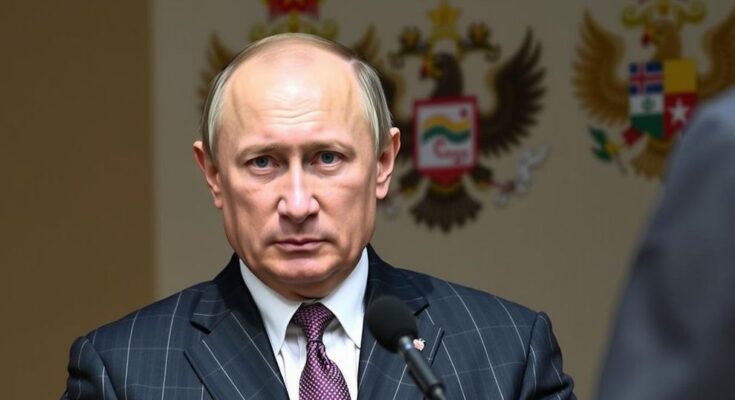Vladimir Putin’s efforts to solidify Russia’s military presence in Africa faces major setbacks as Sudan and Libya reject Russian military agreements. Sudan has denied a request for a naval base while Libya asserts any military presence must adhere to official agreements, highlighting growing regional resistance to Russian influence following the instability in Syria.
In recent developments, Vladimir Putin faces significant challenges in Africa as allies in Sudan and Libya oppose Russian military presence. Sudan has formally rejected a Russian proposal for a naval base at Port Sudan, reportedly motivated by concerns over potential Western repercussions. Concurrently, Libyan Prime Minister Abdul Hamid Dbeibeh has declared his resistance to any Russian military expansion, asserting that any foreign intervention in Libya must occur only through official agreements. These rejections follow the precarious situation resulting from the collapse of Bashar al-Assad’s regime in Syria, which has precariously destabilized Russia’s military foothold in the region.
The geopolitical landscape has shifted dramatically following the decline of Bashar al-Assad’s regime in Syria, casting doubt on the future of Russian military installations such as the naval base at Tartus. Russia’s efforts to secure a naval base in Sudan have been stymied by ongoing civil unrest and resistance from Sudanese authorities. The changes in these alliances jeopardize Moscow’s strategic military objectives in Africa, highlighting how regional dynamics are critical in determining Russia’s influence on the continent.
The recent pushback from Sudan and Libya against Russian military entrenchment marks a significant setback for Moscow, which is already wrestling with the implications of its involvement in Ukraine and the uncertain status of its Syrian bases. As concerns regarding regional hegemony grow among African leaders, Russia’s aspirations to maintain and expand its military influence in Africa face increasing hurdles. The outcomes of these developments will undoubtedly impact Russia’s strategic capabilities in the region moving forward.
Original Source: www.newsweek.com




